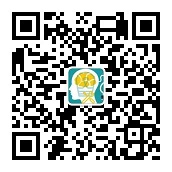
The rapid development of the Internet industry has dazzled everyone in the IT industry. As a talent in the IT industry, it is necessary to constantly learn new knowledge, otherwise it is easy to fall behind. In 2016, artificial intelligence and virtual reality really became popular. Of course, most of the in-depth research on these two technologies are large companies, and there are relatively few individual developers. After all, they need to depend on specific applications.
For ordinary IT practitioners, in 2016, more attention may be paid to the related technologies of mobile terminal development and web terminal development. A dazzling array of technologies emerge in an endless stream. The native development of iOS and android on the App side has been relatively mature and stable. Apple has also continued to promote swift in 2016. Of course, objective-c is still used by many companies. In front-end web development, many frameworks have emerged, such as Vue, React, etc., which have also attracted many developers. The development of the back-end is relatively conventional and relatively stable. The most popular in 2016 may be the WeChat applet. Tencent officially released the WeChat applet on January 9, 2017.
So, for so many programming languages, frameworks, or occupational classifications, how should we choose, it is definitely unrealistic to learn all of them. I agree with the so-called learning one and mastering one. But for the current complicated Internet environment, my suggestion is to focus on one subject, dabble widely, keep a learning attitude at all times, and don't fall behind in this wave.
1. App development
App development is currently mainly concentrated on the two platforms of iOS and android. iOS applications are published on Apple's appstore, and android applications are published on major domestic application stores, such as Tencent, Baidu, 360 and other platforms, as well as foreign Google Play.
The development tool for iOS is xcode, and the development languages include objective-c and swift. The former is relatively stable and has a long history, and the latter is the main programming language promoted by Apple in the later period. For these two languages, if you have previous knowledge of web front-end development, it is recommended that you start learning from swift; if you have done C language development before, it is recommended that you learn from objective-c. No matter which language you use, the framework is similar, and the APIs provided by the system are also common. You choose which language to choose according to your own habits and hobbies. If you know a language, the others are interoperable, and it is not a big problem.
For android development, the development tools are currently mainly android studio, Google's development tools, the earliest is eclipse. I have to complain about the running speed of studio here, and the gap with xcode is not so big. Since many android mobile phone manufacturers are custom developed on the android system, they need to adapt to different mobile phone models and hardware, such as Bluetooth.
Of course, an open source cross-platform mobile application development framework like react native can also be applied to app development, supporting both iOS and Android platforms. At present, there are some companies in react native practice, there are still many pits, and the stability needs to be improved. My suggestion is that if you want to engage in app development, you can start with android, and the cost is relatively low.
2.
I have already introduced the previous articles on web front-end development, and I have also written about the practice of the vue framework. If you are interested, you can review the previous articles.
3. Back -end The back
-end programming languages include java, php, python, node, etc. How to choose can be compared online. I have written articles related to spring boot before, and you can learn more if you are interested.
4. WeChat applet
WeChat applet, in my opinion, is a secondary encapsulation of WeChat on the basis of html, css, and javascript, similar to the development framework such as vue, and runs with the app inside WeChat. Front-end students can get started quickly with a little learning. Of course, it is not known how the mini-program will eventually develop. WeChat mini-programs cannot be registered by individuals, but need to be registered as an enterprise. Developers can learn mini-program development through local debugging.
Regardless of whether you are engaged in app, web front-end, back-end, or WeChat applet, it is recommended not to learn all at once. According to your own preferences, learn one well, and after you are proficient, try to learn other ones.
If you like our article, just like it, and welcome to control my public account "Charging Practice" Your approval is the biggest motivation for me to share.
